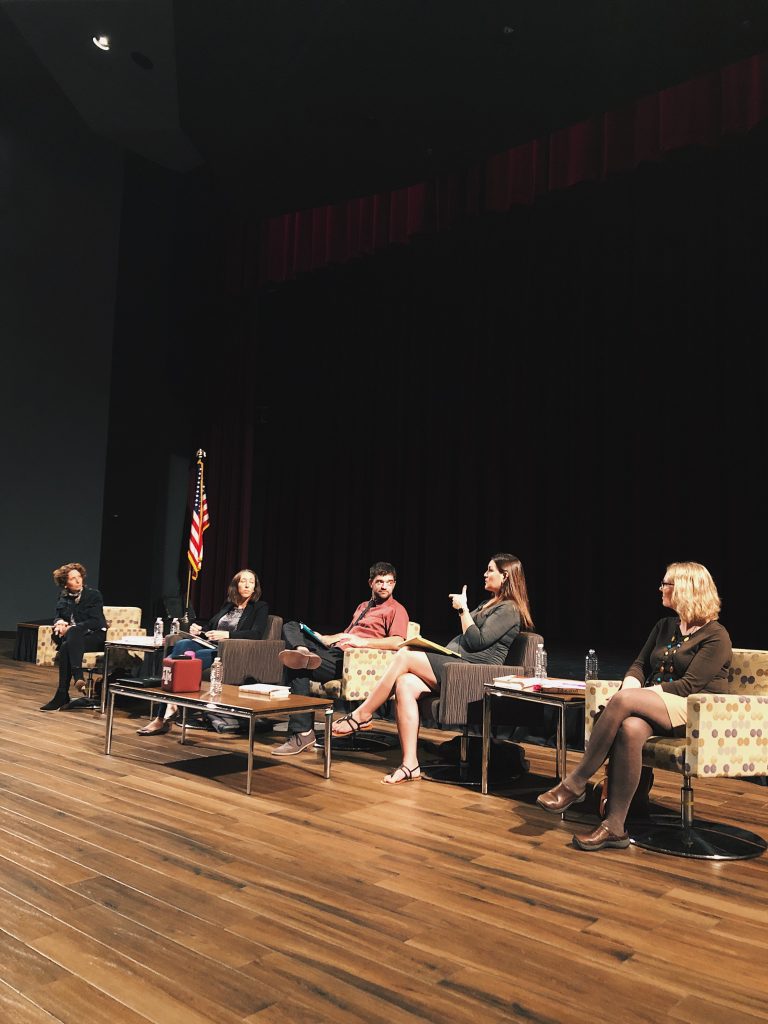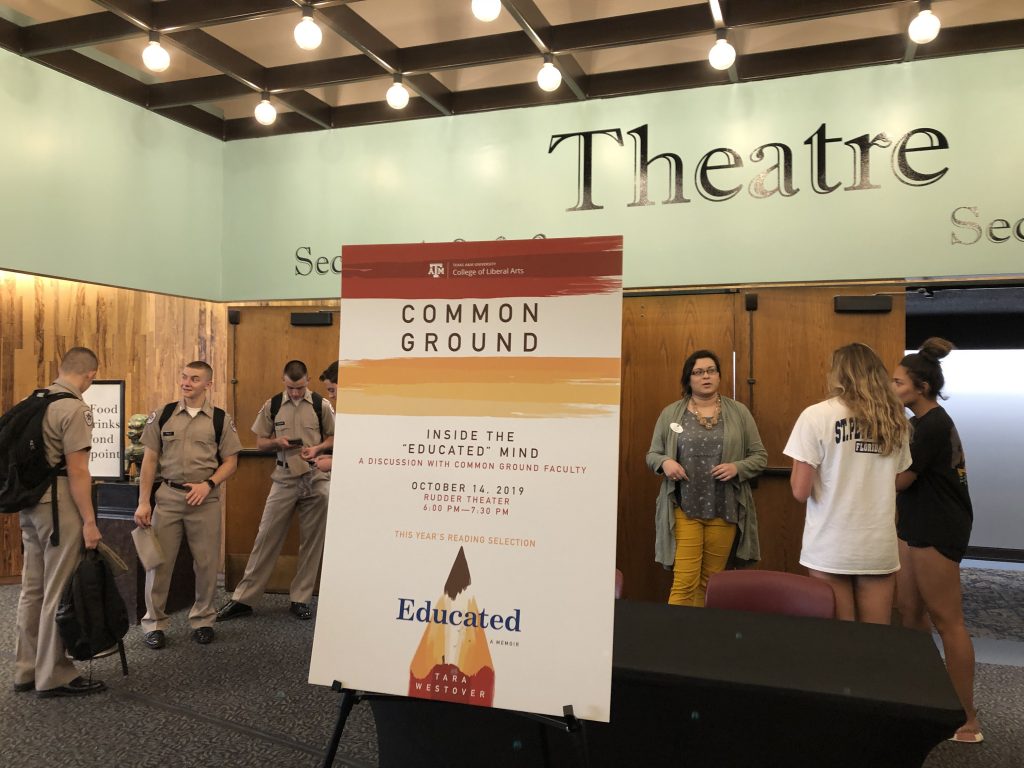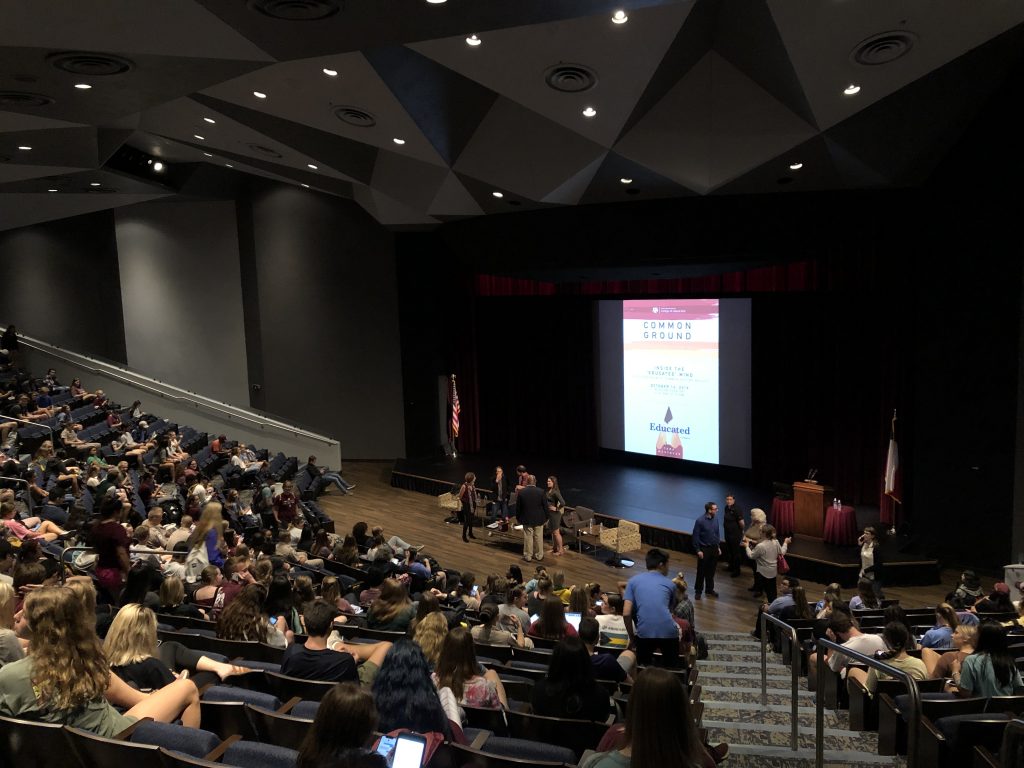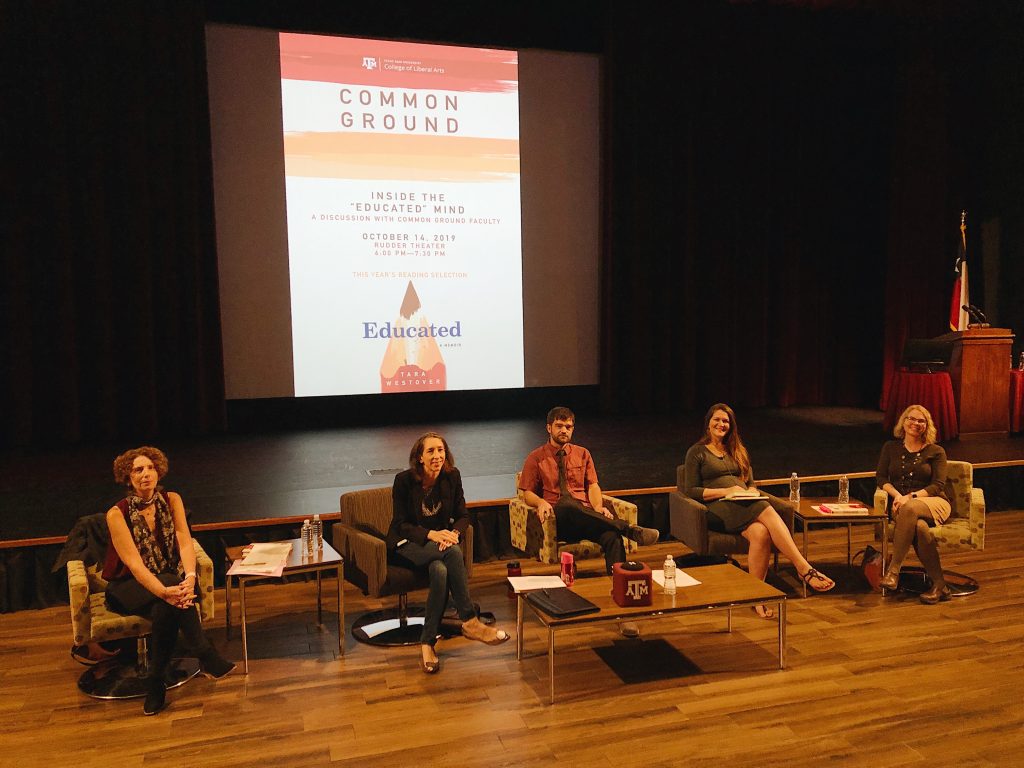Reflecting on “Educated” — The complex nature of the human story
In this recap of the 2019 Common Ground event, each faculty member's commentary on Educated by Tara Westover shows the complex nature of making sense of the human story — a task that the College of Liberal Arts continually seeks to do.

By Alix Poth ’18

This week, the College of Liberal Arts hosted the annual Common Ground event.
Rudder Theatre was filled as the audience heard from five faculty members discussing the 2019 Common Ground reading, Educated: A Memoir by Tara Westover.
Below are some memorable remarks and quotes from the faculty members as they analyzed different parts of the memoir from their various disciplines.
The evening kicked off with Clare Katz, professor in the Department of Philosophy, contemplating the battle over “education” and how individual desire plays a role in choosing to pursue education, even when discouraged by others. Katz drew from Jewish tradition, and noted that Westover’s education was not entirely independent — the sum of outside factors like professors, classes, and classmates created a transformative, dependent education.
The departure from the old self is both the danger and joy of an education.
Next was assistant professor of religious studies Robin Veldman. She commented on the author’s note at the beginning of the book stating that her account was not a portrait of Mormonism. Veldman agreed that the book should not be viewed as a portrait of Mormonism, but argued that it is about religion. More specifically, it’s about the power of religion to shape a life. Veldman stated that religious studies scholars view religions not only as ideas, but as practices, habits and dispositions that are lived and embodied. She used the specific example of how Westover’s sense of alienation from mainstream Mormonism was underlined by differences in clothing choices.
Religion is not a matter of what you believe, but of the practices of those beliefs. Things like power and gender relations are affected by religion.
Following this, Matthew Vess, Department of Psychological and Brain Sciences associate professor, looked at the tension between reliance on faith and utilizing medical intervention in health crises. Vess’s research focuses on why some people choose to live by faith alone at the cost of medical intervention. He explained how he believes Terror Management Theory, or how humans avoid the physical and psychological threat of facing our own mortality, played a role in Westover’s experience. He said religion helps us to cope with mortality, and humans tend to cling more strongly to those beliefs when their validity is threatened by outsiders.
Religion helps us to cope with morality, so we want to bolster the validity of those religious systems. When those beliefs are challenged, it feels threatening.

The fourth faculty member was assistant professor of communication Anna Wolfe who noted that one way people learn about who they are is telling the stories of their lives. However, it is impossible to tell the full, unbiased account of our lives. Even the most diligent efforts of telling our stories are prone to forgetfulness, conjecture, blurring fact and fiction, configuring memories to accommodate others, etc. Communication is necessarily imperfect, she said, as we cannot guarantee our own meanings when we communicate with people that hold different perceptions and values. With that in mind, it is truly amazing that we ever understand another person at all. The stories we believe and tell create the world as we know it.
Communication is necessarily imperfect — we can’t guarantee our meaning. You have to expect discrepancy… but then you can marvel at the connections and overlap that happens when we communicate.
Finally, professor of sociology Theresa Morris walked through a series of events from the book that highlighted Westover’s brother, Sean’s, violence against her. She explained these incidents as Sean’s attempts to control Westover’s behavior, and at his anger or discomfort with Westover developing into a young woman. Morris pointed out that sibling abuse, a type of domestic violence, is extremely common but hardly ever heard or studied, even though it is likely more common than parent or spousal abuse. She said Westover’s story is an illustration of how sibling abuse is often ignored, belittled or explained away (parents don’t often see it as “abuse,” but as normal sibling rivalry or something that will be outgrown), or disbelieved. Morris concludes by drawing from the Feminist Standpoint Theory, saying that if Westover had had someone to listen to and believe her story, she might not have had to lose her family.

The event concluded with the faculty members commenting on one another’s insights and taking questions from the audience. Those attending had the opportunity to leave with greater understanding of the complex nature of making sense of the human story — a task that the College of Liberal Arts continually seeks to do across all disciplines.
You can also read a recap of the event written by The Battalion here.
